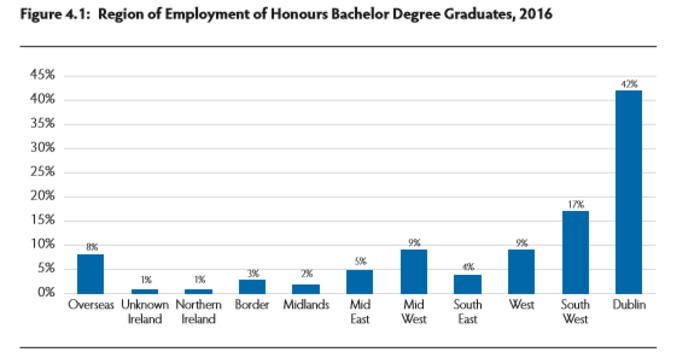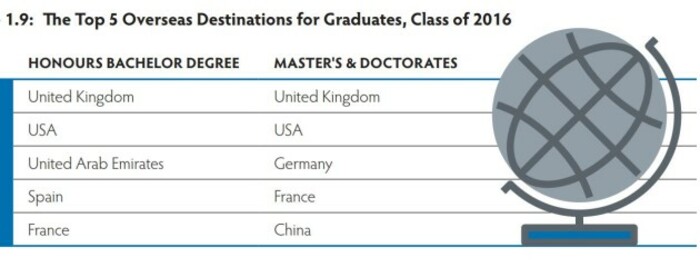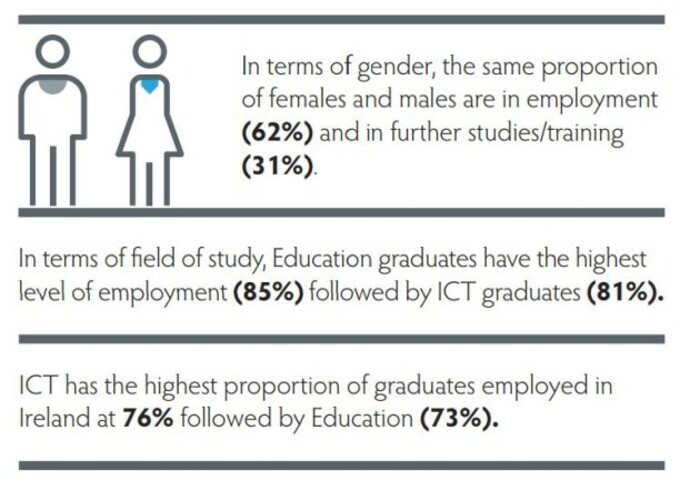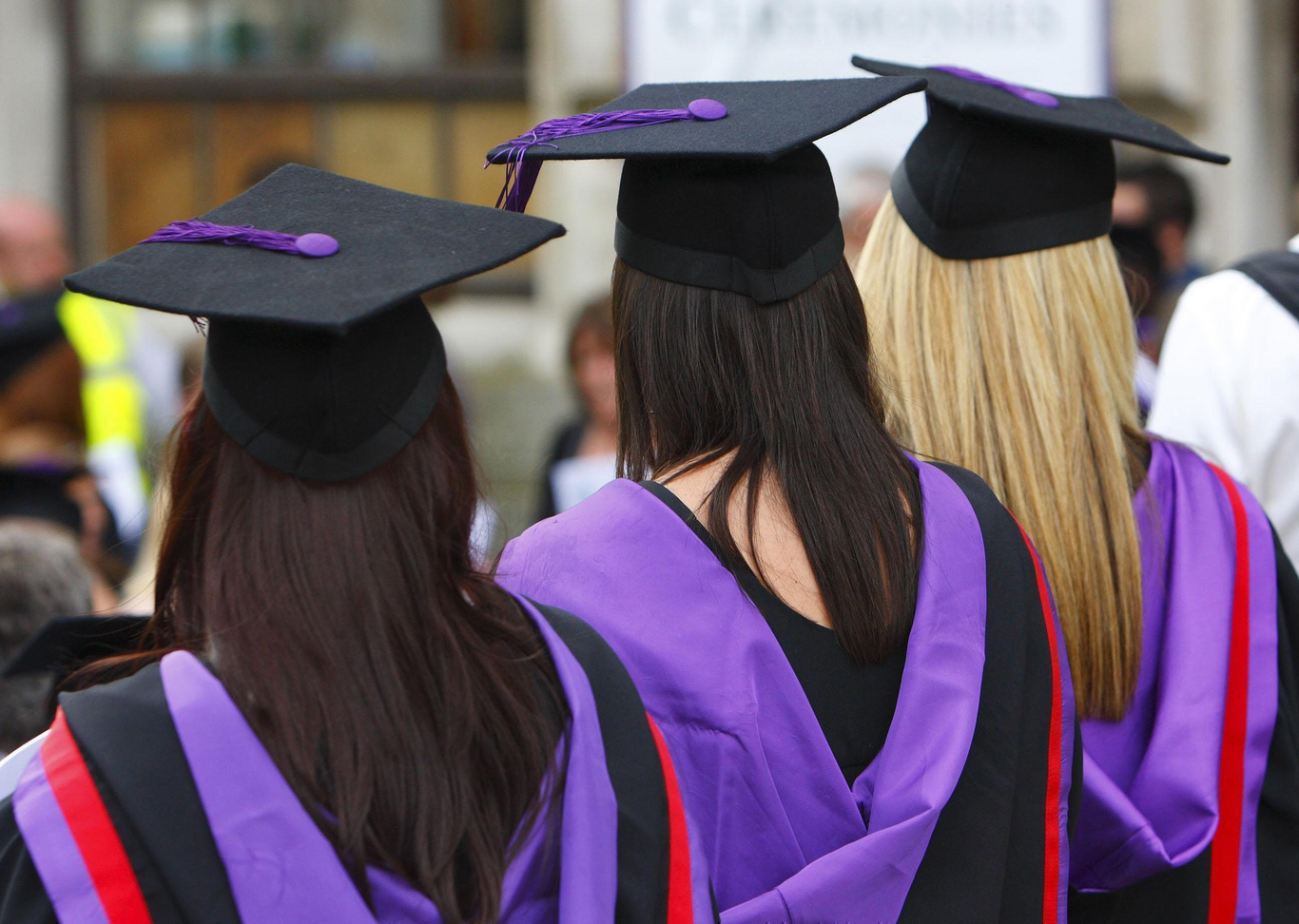The share of grads finding work in Ireland is back to pre-recession levels
Most university graduates are employed in Dublin and Cork nine months after being handed their degrees.
MOST UNIVERSITY GRADUATES are employed in Dublin and Cork nine months after being handed their degrees.
A new survey has found that employment prospects for those with a higher education qualification continue to improve.
More than 18,000 graduates from the class of 2016 responded to the ‘First Destinations’ survey, the findings of which have been published by the Higher Education Authority (HEA).
The study shows that 54% of those who graduated from an Irish university with a degree in 2016 are now employed in Ireland, 8% are employed overseas, 31% are in further studies, 3% are unavailable for work and under 5% are currently seeking employment. However, there are significant regional variations in where graduates are employed.
Of all those in employment, 42% are in the Dublin region and 17% in the south-west (Cork and Kerry). The regional disparity is highlighted by the fact that just 4% of all graduates find employment in the south-east; 3% in the border region and only 2% in the midlands.
The authors note that while the study does not include graduates from institutes of technology, which they describe as “significant players in regional development”, there is concern that more university graduates are not being employed in these regions.

Pre-recession levels
The general trend in improved employment prospects for graduates has been holding up, and the proportion of graduates now finding work in Ireland is back at pre-recession levels.
Commenting on the report, HEAD chief executive Dr Graham Love said: “The evidence continues to point to a higher education qualification meaning that you are less likely to be unemployed and tend to have a higher starting salary.
“There is a challenge, however, for us to create more graduate employment opportunities outside of Dublin and Cork in order to ensure better regional development.”
Dr Love said the planned development of ‘technological universities’ will play a role in addressing this. The ‘First Destinations’ study will be extended to cover institutes of technology from this year onwards.

The survey found that, nine months after graduation, 62% of people with an honours bachelor’s degree are in employment, the same level as in 2015. Some 87% are working in Ireland.
Graduates going overseas to work dropped by two percentage points between 2015 (10%) and 2016 (8%). The UK is the most popular destination for graduates employed overseas, followed by the US.
Graduates seeking employment returned to 2014 levels (5%), compared to 4% in 2015.
Gender
In terms of gender, the same proportion of females and males are in employment (62%) and in further studies or training (31%).

The survey found that education graduates have the highest level of employment (85%) followed by information and communications technology (ICT) graduates (81%). ICT has the highest proportion of graduates employed in Ireland at 76%, followed by education (73%).
In terms of people with a higher or postgraduate diploma, 73% were employed in 2016, down from 78% in 2015. The authors said it should be noted that there was an overall drop in the number of graduates in this category, most likely due to the replacement of the ‘Professional Diploma in Education’ with the ‘Professional Master of Education’.
About eight in 10 graduates with master’s degrees or doctorates were employed nine months after graduation, up 1% on 2015′s figure.
Written by Órla Ryan and posted on TheJournal.ie






